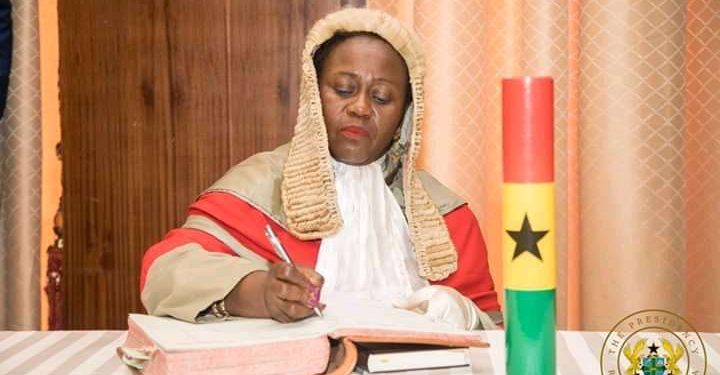
Suspended Chief Justice Gertrude Sackey Torkornoo has raised serious concerns about the selection of Adu Lodge as the venue for the ongoing impeachment hearings against her, calling it a symbolic and emotional attack aimed at making her feel unsafe and psychologically unsettled.
In a bold and emotional public address, Justice Torkornoo revealed that Adu Lodge, located in Accra, is historically associated with one of Ghana’s darkest episodes, the abduction and murder of three High Court Judges and a retired army officer, Major Sam Acquah, who was also her uncle and guardian at the time.
“Adu Lodge featured very prominently in the planning of the murder of judges on June 30th, 1982,” she stated. “Major Sam Acquah, my uncle and guardian, was one of the victims. I lived with him when he was abducted and murdered.”
Justice Torkornoo said that holding her hearing in the same facility where the 1982 assassinations were allegedly planned appears to be a calculated attempt to intimidate her.
“Was Adu Lodge chosen for this inquiry to make me feel insecure? I think so,” she asserted. “There is no reason to hold a quasi-judicial hearing behind the high walls of Adu Lodge.”
The facility, which currently serves government and official purposes, became infamous during the early 1980s military regime as a site allegedly linked to the orchestration of the judge killings. The victims, whose brutal deaths shocked the nation, were abducted during curfew hours and later found murdered, with signs of torture and execution.
That trauma, according to Justice Torkornoo, is deeply personal and has made the current hearing setting even more disturbing.
“This is not just a venue. It is a reminder of judicial terror. Choosing it for this process sends a message, one that I believe is meant to rattle my sense of peace and security.”
Justice Torkornoo’s criticism of the venue is part of a larger claim that the impeachment process itself is politically motivated and procedurally flawed. She has alleged breaches of fair hearing rules, denial of access to evidence, and a conflict of interest in the composition of the committee hearing her case.
 GhArticles.com Every News in Detail
GhArticles.com Every News in Detail



